It all started when my five year old stayed up past his bedtime and watched River Monsters on SBS. The following afternoon after school he informed me we were going fishing.
Luckily a few months earlier his mum had picked up a cheap combo set at a south coast servo. So, after grabbing this 4 foot rod from the garage and raiding the backyard worm farm, we headed off to the local wetland (storm water control pond).
Taking your son fishing for the first time is an important moment in a father-son relationship and it’s actually pretty hard to admit you have no idea. The best strategy in this situation is “fake it till you make it”.
Threading the sinker on the line and tying on the hook with a random knot was not very difficult. Trying to get the tiny compost worm on the hook took a lot longer. Eventually I was able to cast it out, hand him the rod and sit back to wait for him to get bored. I was a bit bemused when 30 seconds later he yelled “Fish on Dad!”
I didn’t even bother looking up from my phone. “Nah mate you have to leave the bait out there”.
“But dad it’s pulling”.
And fair enough when I looked up the end of the rod was shaking like a young Elvis and he proudly reeled in a 25cm fish. After removing the hook I handed him his catch and he was soon mobbed by a bunch of kids who were riding their bikes nearby. This gave me enough time to google what sort of fish it was so I was able to answer the inevitable questions from my son’s new fan club … “Its a English Perch also known as a redfin. Yes you can eat them but maybe not out of this pond”.
After this initial success I had a child who was mad on fishing but my wife and I had no experience, nor did we have any “fishing families” in our immediate circle of friends. It’s at this point that my own fishing journey started. In the three years since I have put in a lot of time trying to get my children and their friends onto fish.
Reflecting back on this period I believe parents new to fishing should concentrate on four main areas.
1. Knowledge is Key
The more you know the more fish your kids will catch and the more fun they will have. At the time my son caught the bug I came across a fishing course run through the local community college. The first thing the teacher (Danny Spelic) told us was that in recreational fishing 5% of anglers catch 95% of fish. The course covered the basics like types of fish, local waterways, fishing techniques, regulations, equipment and practical stuff like knot tying and casting. This was an ideal way for me to get started. If you don’t have access to a knowledgeable mentor and can afford it, I’d recommend doing a similar course or hiring a professional guide to get you started. I suspect this will get you onto way more fish much faster than buying more lures or upgrading your rods.
I’m still a long way from making it into that 5%, but one thing I do know is to progress you have to keep an open mind and try and learn as much as you can from as many different sources as possible. I’ve found the following really useful;
- Purchasing a fishing guidebook for my local area … absolute gold in terms of identifying places to try
- Obtaining a fishing license. This will come with information on where you are allowed to fish, protected species, closed seasons and bag and size limits
- Regularly dropping into my local tackle shop to ask advice.
- Keeping an eye on the local fishing FB page. Its amazing how quickly you start recognizing where people are fishing in the photos
- Regularly checking new content on sites such as Social Fishing, Fishraider, Robbie Fishing etc. My son has learnt a lot more watching these guys on YouTube than fishing with me
- Reading Freshwater Fishing mag
2. Go Fishing without your Kids
To get the basics you need to go out and practice and learn a bit through trial and error. This is way easier without your kids around because you can fully focus on tying knots and working out how and where to cast. If you go out with your kids first off it means you will be distracted … young children need close supervision around water. Most will be overenthusiastic and will want to check the bait 10 seconds after it hits the water. Going solo means you can take your time. This is both less stressful and a more productive way of learning for you.
Another advantage is you can use the time to try a bunch of different spots. This means that when you do take the young ones out you will be familiar with access and any potential hazards at an area. You can also be more confident that an area will be a productive one as you have caught fish there before.
If your child is going to fish over the long term it will be way easier if at least one of their parents has a passion for it too. To develop this passion I’d recommend going out without children at least some of the time. My children started fishing at ages 5 and 7. At this stage fine motor skills are still developing so tangles are inevitable and frequent. I found trying to fish myself at the same time an exercise in frustration. So initially fishing myself and taking my kids fishing were two separate exercises.
3. Set Them Up for Success
Young children actually prefer catching to fishing. I’ve seen heaps of posts on social media from adults arguing that if kids aren’t willing to stay with their rods then they don’t deserve to land the fish and they need to put in the hours and earn it etc. This might be true for teenagers but for youngsters this attitude is bollocks. To get kids into fishing and keep them interested all you need to do is get them onto fish. The best way to do this is target species that are easy to catch. In my local freshwater lakes that means redfin and carp.
All young kids think that they want to catch the biggest fish in the lake and chuck the biggest lure in the tackle box. I have found my children have had way more fun catching lots of smaller fish. Go for quantity over size. For this reason I would start them off on smaller lures and it will also suit their light rods.
Be prepared to move around, particularly when flicking lures. Only fishing in one or two spots is a recipe for donuts. If you are willing to drive between say four and six spots in an afternoon success will be much more likely.
As all anglers know sometimes fish just will not bite. It is important that your kids understand this so you can manage expectations. In my household if we have a fishless trip we buy a donut on the way home. This seems to keep them psyched.
4. Boredom is your Enemy
The biggest challenge when fishing with young children is that they get distracted and bored very easily. I’ve found the following strategies have helped keep our lines in the water longer:
- Bring one of their mates along. Kids are way happier if they have a friend to play and talk with… Trust me your fishing trips will last three times as long.
- Bring warm clothes and enough food. As soon as a child is cold or hungry they will want to go home.
- If you are chasing reddies, flicking lures is they way to go. This way they will be constantly doing something.
- Bring an extra rod so that they can continue casting when they tangle or snag up, which happens a lot.
- Try and minimize the time they are standing around waiting. If possible do all your rigging at home. As a novice yourself it is going to take you longer to tie leader knots and put soft plastics on jig heads etc.
- You don’t need flash gear to start with. However if you do buy a cheap rod/reel combo replace the line with a decent monofilament. Poor quality line is notorious for tangling. Anything you can do to keep them fishing will mean less whinging.
- When fishing for carp bait is the way to go. Don’t be afraid to bring something else to occupy them while they wait for a bite. Taking along a footy, book or ipad is totally cool. In this situation I will sit with the rods and when I yell “fish on” they tend to come running pretty quick.
- Mix it up to keep them interested. If you do know another fisho with more expertise they will often be willing to take you and your kids out. My guys have been lucky enough to go out in a tinnie chasing flatties and bream a few times and have also got onto some reef fish out of Bateman’s Bay with another friend in a bigger boat. They always love catching something they haven’t caught before.
It is also worthwhile considering risk and safety. This warrants a whole article in itself but I’d encourage parents to pay particular attention to two areas:
- Supervision- Young kids need supervision around water so its important you are able to see them at all times. You have to be aware of where they are even when you are untangling reels, replacing bait or changing lures.
- Eye Protection- Young kids aren’t the most accurate casters. Lures tend to fly everywhere. Always make sure both yourself and yours kids are wearing eye protection. Sunnies will do the job and children’s safety glasses are only a few dollars at Bunnings. Kids will often forget to check their back cast so you also need to watch out for others who happen to be in the area.
Hopefully some of the above will help make your initial family fishing adventures both more enjoyable and successful. Don’t let an initial absence of knowledge hold you back. If you make the time and effort your kids are in for a whole lot of fun.
Written by Ganguddy Goodoo
‘Ganguddy Goodoo has been fishing for 3 years. His home turf is Canberra’s urban lakes and the Murrumbidgee. He spends most of his time trying to get his children off Minecraft and outside doing something active and adventurous. Before he started fishing he spent about 30 years bushwalking and climbing. Once the young ones are a bit more self sufficient he would like to revisit some remote rivers and creeks in the Blue Mountains and Australian Alps with a fly rod.’

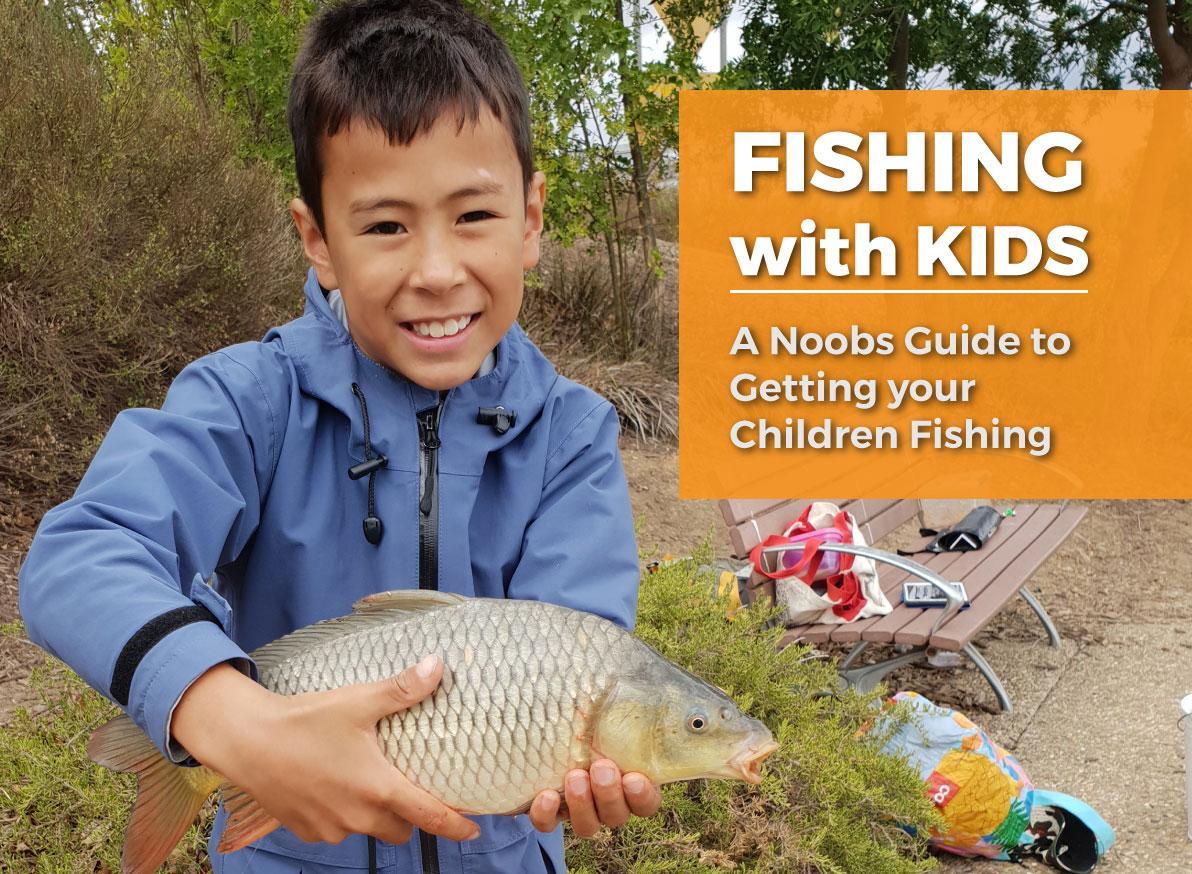
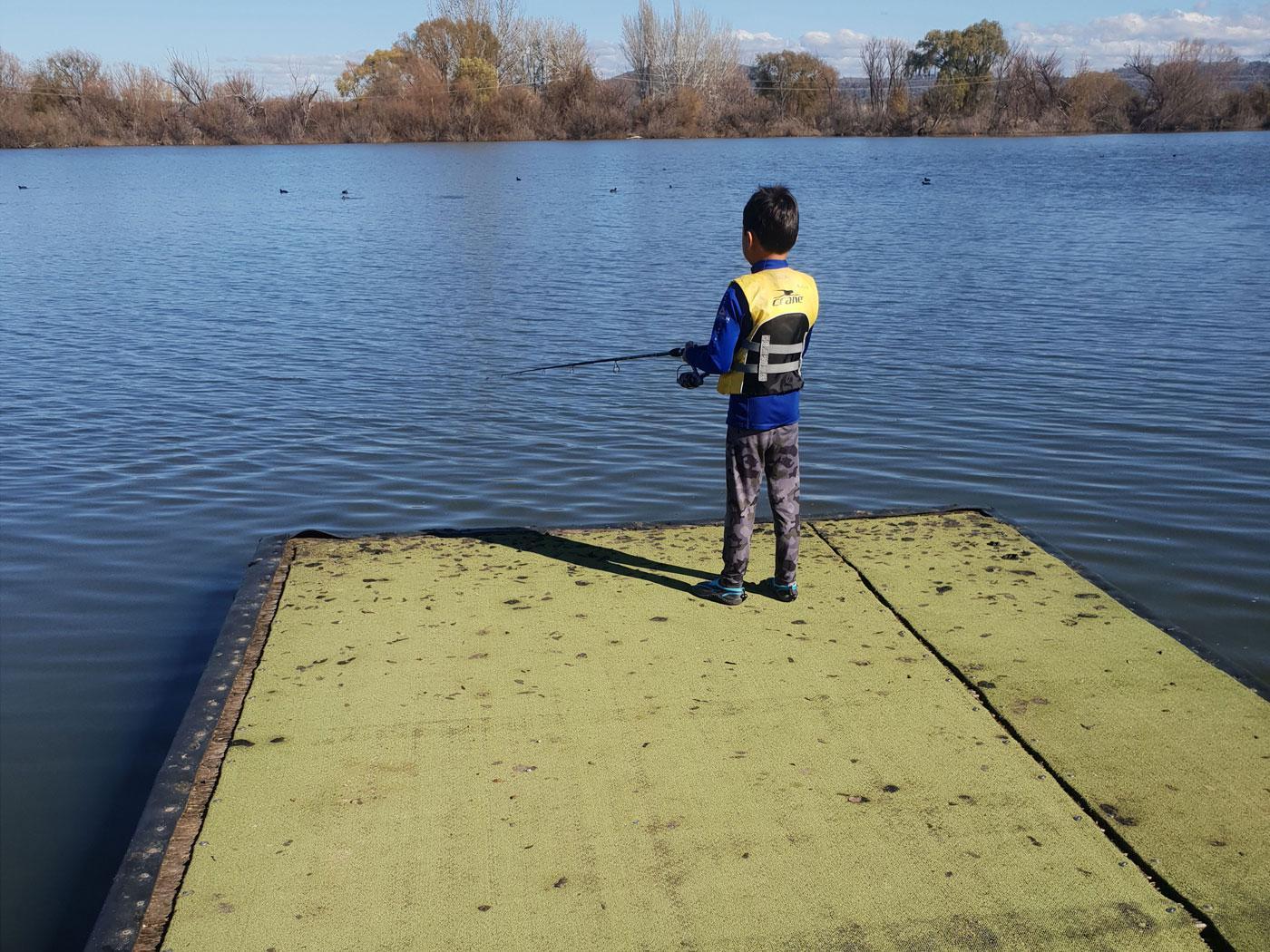
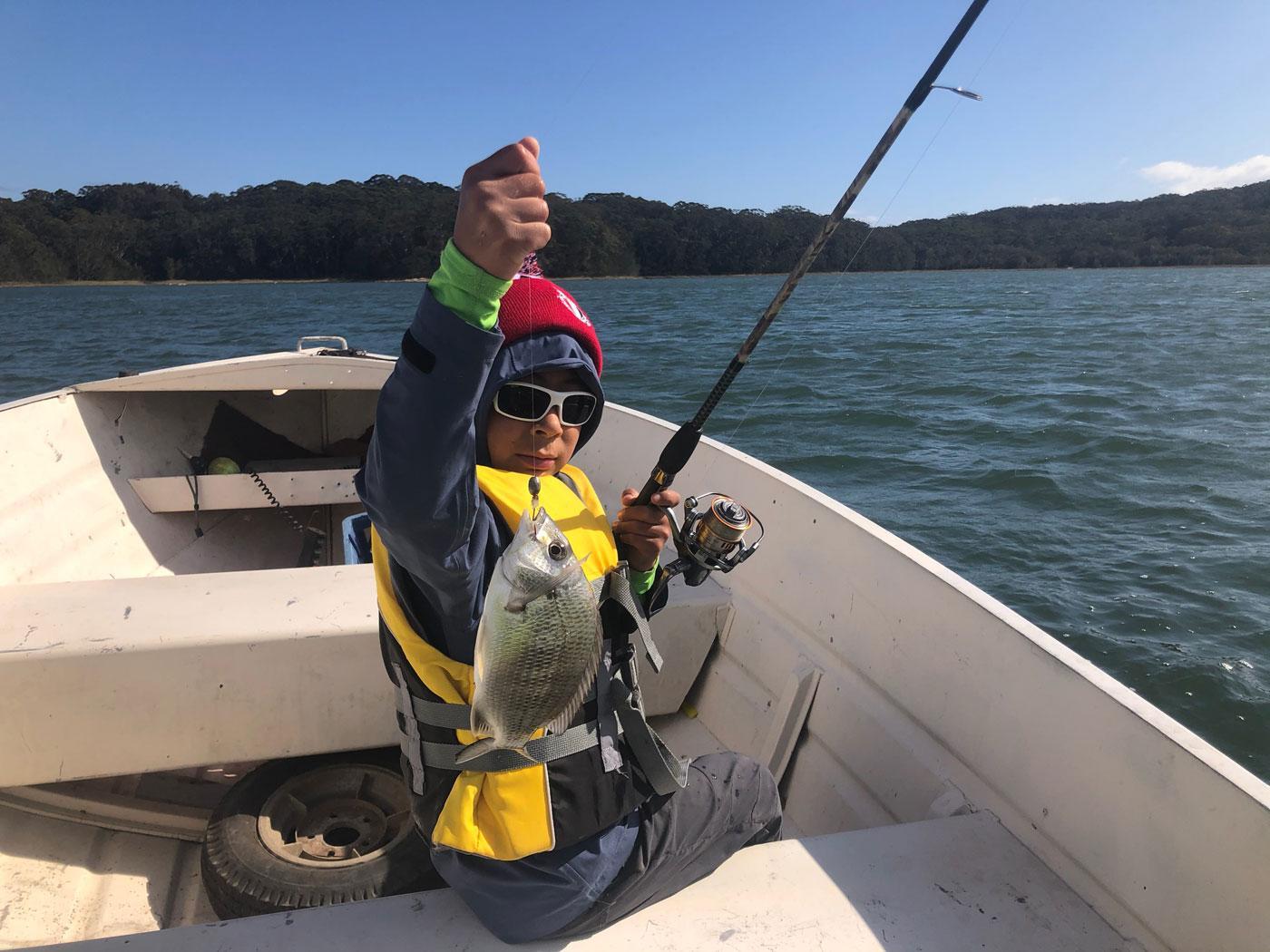
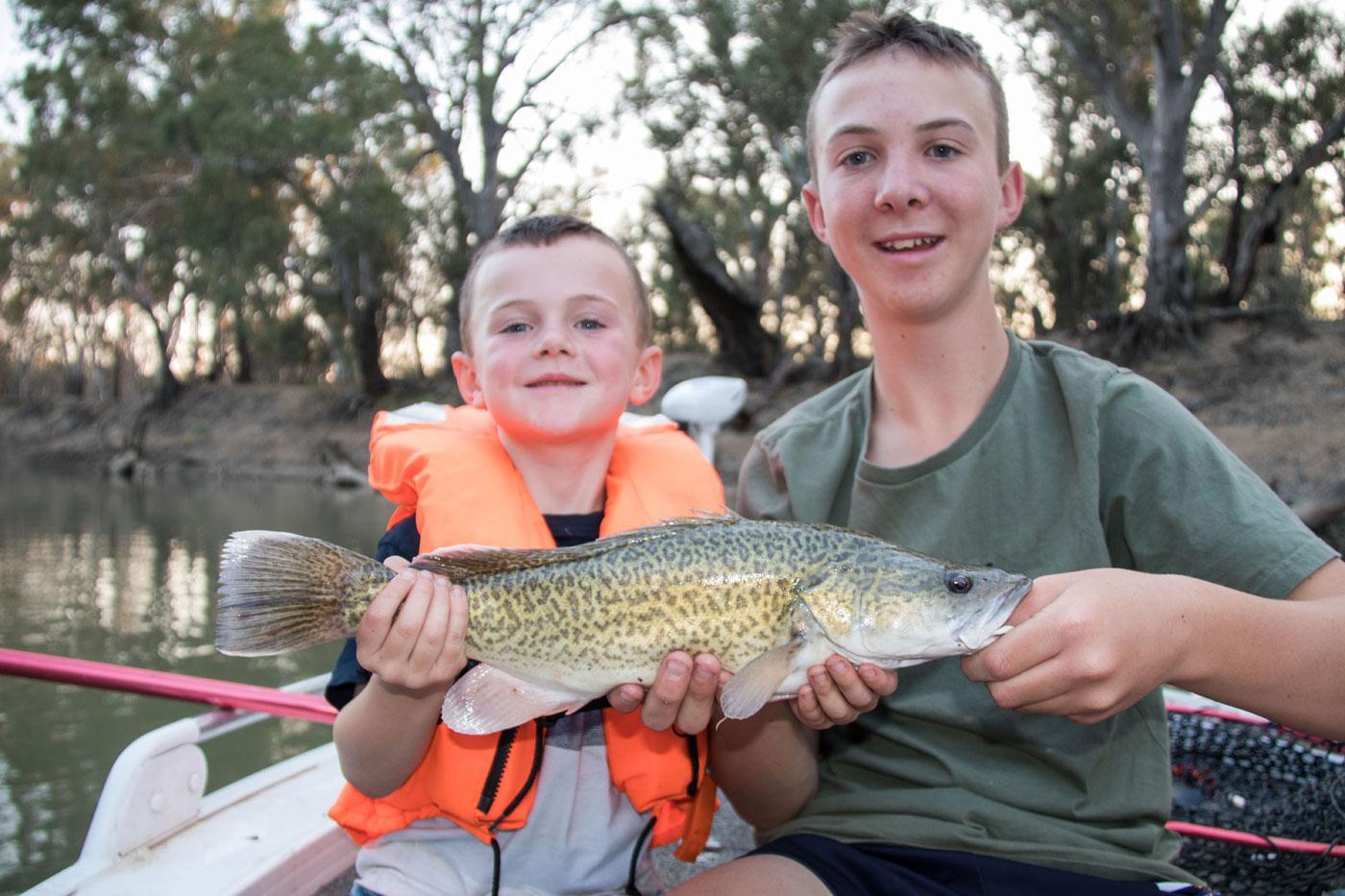
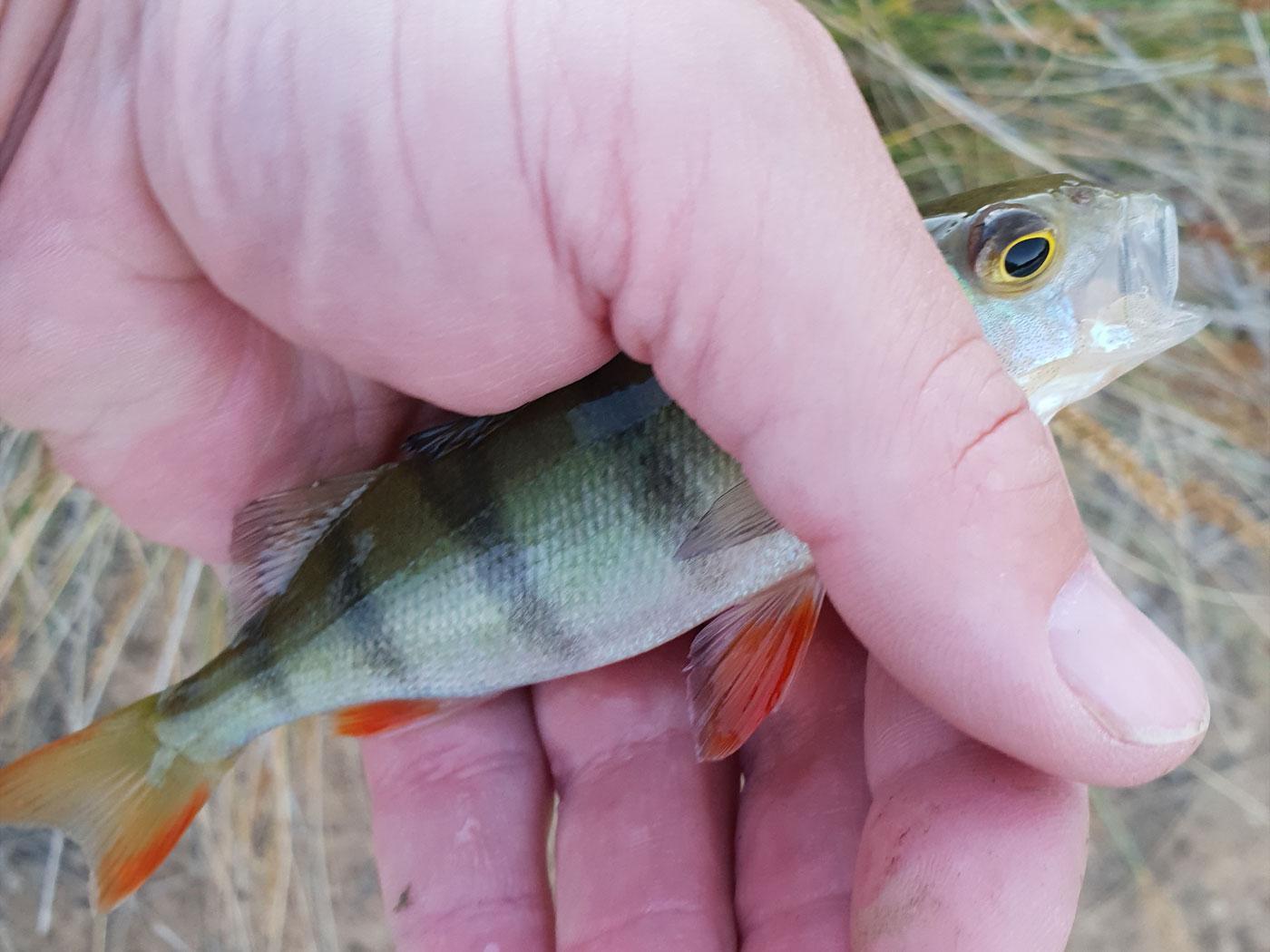
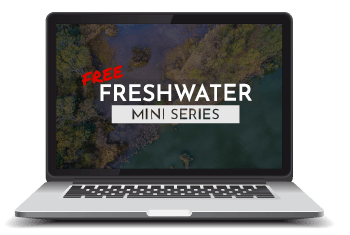
0 comments